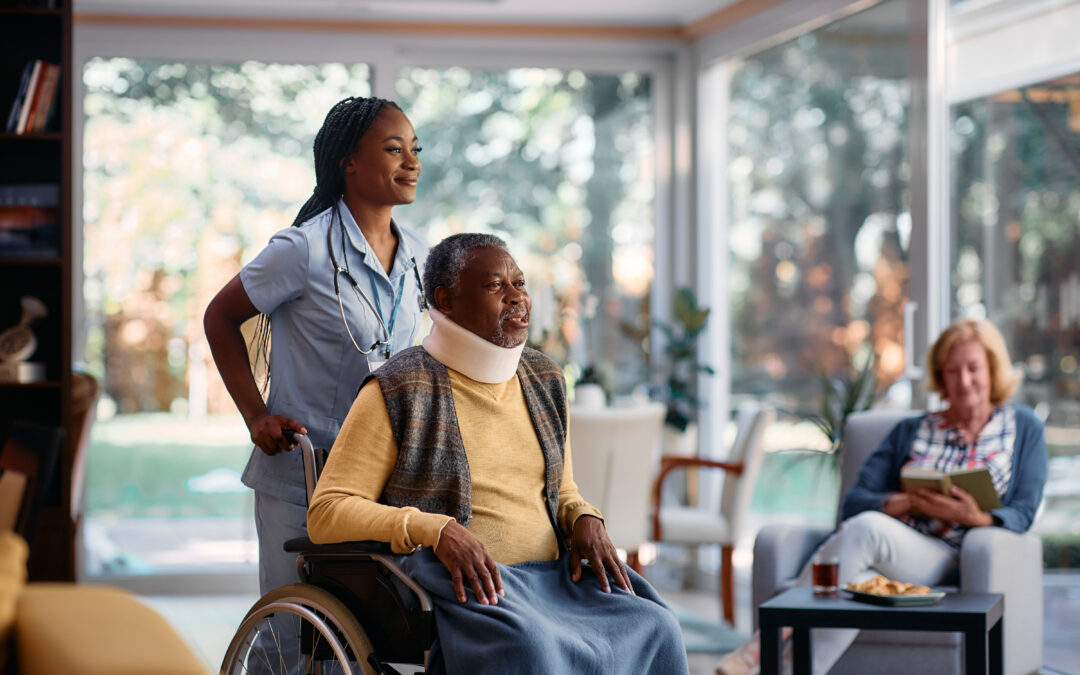Resident-on-Resident Attacks on the Rise in New Jersey Nursing Homes: With the increased number of residents with dementia in New Jersey nursing homes corresponds a growth in occurrences of resident-on-resident nursing home abuse.
According to a NJ Advance Media article, resident-on-resident attacks in New Jersey nursing homes are trending upwards, particularly in dementia wards. In the article, New Jersey State Long-Term Care Ombudsman Laurie Facciarossa Brewer said that resident-on-resident assault incidents went up from 259 to 456 from fiscal year 2021 to fiscal year 2022, and are already showing an uptick for 2023. As only a portion of incidents are reported to the state agency, the actual number for the state might be higher.
NJ Advance Media conducted an examination of abuse reports against New Jersey nursing homes that revealed a number of alleged incidents of violent, “out-of-control” resident-on-resident attacks initiated by residents with a history of verbal or physical aggression at the homes where they reside. According to the article, persons with dementia can experience confusion, agitation, and a tendency toward aggression, particularly late in the day and/or if the patient is coping with a urinary tract infection or taking multiple medications. Often, acts of aggression or violence are signs the person is not receiving proper supervision and care. Brewer said some cases revealed circumstances in which nursing homes had accepted individuals whose needs could not be met by the facility.
A violent incident involving two or more residents is known as resident-on-resident abuse. This type of nursing home abuse often occurs when nursing home staff neglects to provide adequate supervision and especially when staff fails to separate residents with violent tendencies from others. Failure to take the proper measure to avoid resident-on-resident abuse is an example of nursing home malpractice. Nursing home staff is required to have de-escalation training in order to diffuse potentially dangerous situations; moreover, nursing homes should take measures to separate aggressive residents from others to prevent injury, and document any incidents of aggression. Not doing these things indicates the kind of dangerous neglect that amounts to nursing home malpractice.
The article referenced the alleged assault and wrongful death of Clara Sutowski, who died in the hospital in January from blunt force trauma after being attacked by another resident at AristaCare at Cedar Oaks in South Plainfield. Sutowski’s death was ruled a homicide, and her alleged assailant has been charged with reckless manslaughter. AristaCare was cited with licensure violations related to Sutowski’s death. These citations of nursing home malpractice included the following failures of the facility:
- A failure to ensure residents were not subjected to physical abuse
- A failure to “supervise and monitor a resident who had prior aggressive behaviors”
- A failure to protect residents from experiencing physical resident-on-resident abuse
When resident-on-resident violence directly causes death—as in the case of Sutowski—and the facility where the resident resides has failed to take the necessary precautions to avert violence and injury, it is strongly possible that nursing home wrongful death has occurred. In these circumstances, or in any situation where the death of a resident appears to have resulted from nursing home malpractice, an experienced skilled wrongful death attorney should immediately be contacted.
Fighting Elder Abuse, Nursing Home Malpractice, and Wrongful Death
An experienced nursing home malpractice and wrongful death attorney, Brian P. Murphy diligently holds Philadelphia/PA and NJ nursing homes responsible for nursing home abuse and neglect. Residents of Philadelphia/PA or NJ nursing homes should feel safe within the facilities in which they live, and should expect their rights guaranteed under federal law to be upheld. Having practiced for years as a wrongful death attorney, Brian Murphy fearlessly confronts negligent nursing homes and steadfastly pursues the successful resolution of his clients’ cases. Should you find yourself needing to contact a nursing home malpractice and wrongful death attorney, call Brian Murphy today to discuss your







